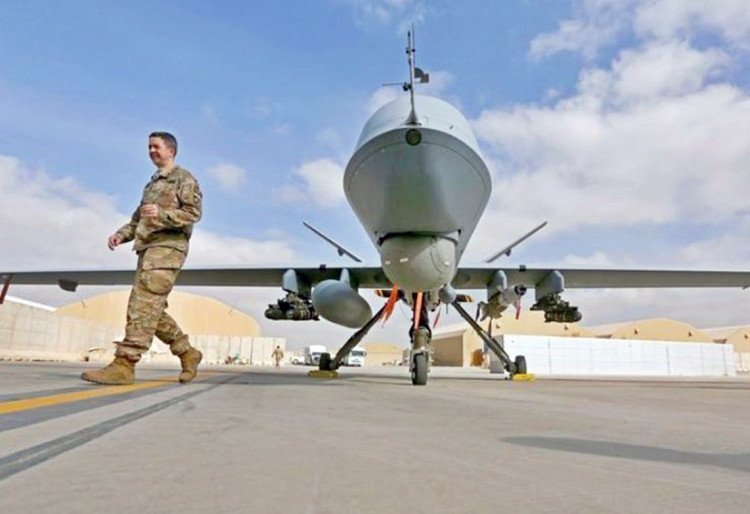On Tuesday, a U.S. drone operating over the Black Sea was brought down by a Russian fighter jet, according to a statement from U.S. European Command.
General James Hecker, commander of U.S. Air Forces Europe and Air Forces Africa, confirmed that a Russian aircraft had intercepted and hit the MQ-9 drone, resulting in a crash and total loss of the aircraft. Prior to the collision, two Russian aircraft had harassed the drone, dumping fuel and flying in front of the MQ-9 in a "reckless, environmentally unsound, and unprofessional manner," he added.
The incident was called "unsafe and unprofessional" and part of a pattern of dangerous behavior by Russian pilots.The incident occurred in international airspace, and the U.S. was not required to inform Russia before flying over the Black Sea, said National Security Council spokesman John Kirby.
The State Department will discuss the matter with Russian counterparts, and Russian Ambassador to the U.S. Anatoly Antonov has been summoned to express the U.S.'s "strong objections" to the intercept.
The Russian Embassy in Washington, D.C. has not commented on the incident.
Some analysts suggest that the Russians may have been attempting to intimidate the drone, as it was collecting their communications. The MQ-9 Reaper drone is manufactured by General Atomics Aeronautical Systems and is designed to conduct reconnaissance missions and collect intelligence. The remotely piloted system can carry Hellfire missiles and Joint Direct Attack Munitions.
The incident highlights the growing tensions between the U.S. and Russia, as the two nations continue to compete for dominance in the military and technological spheres. The downing of the U.S. drone underscores the need for better communication and coordination between the two nations to prevent further dangerous incidents in the future.






